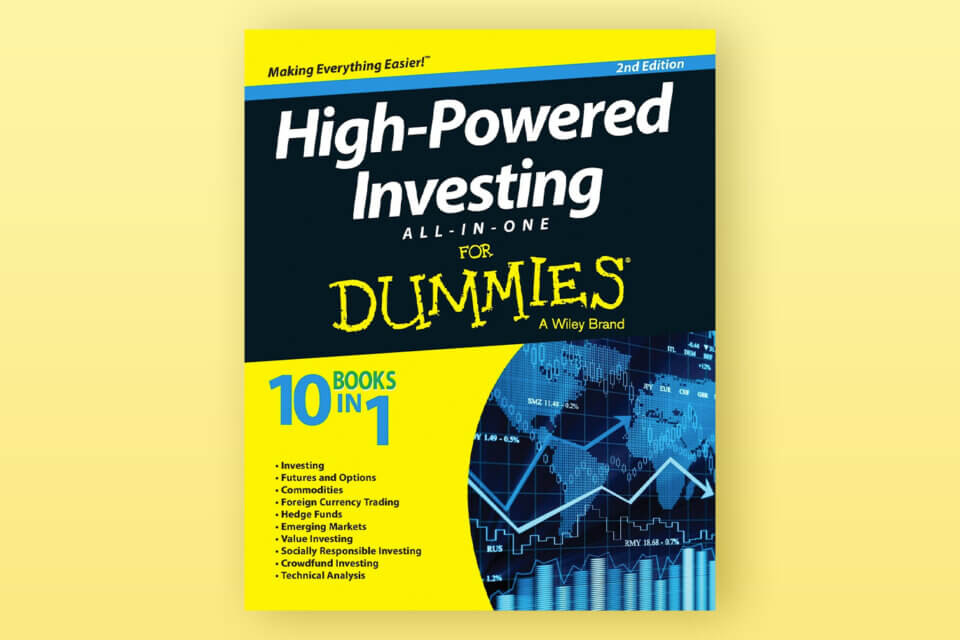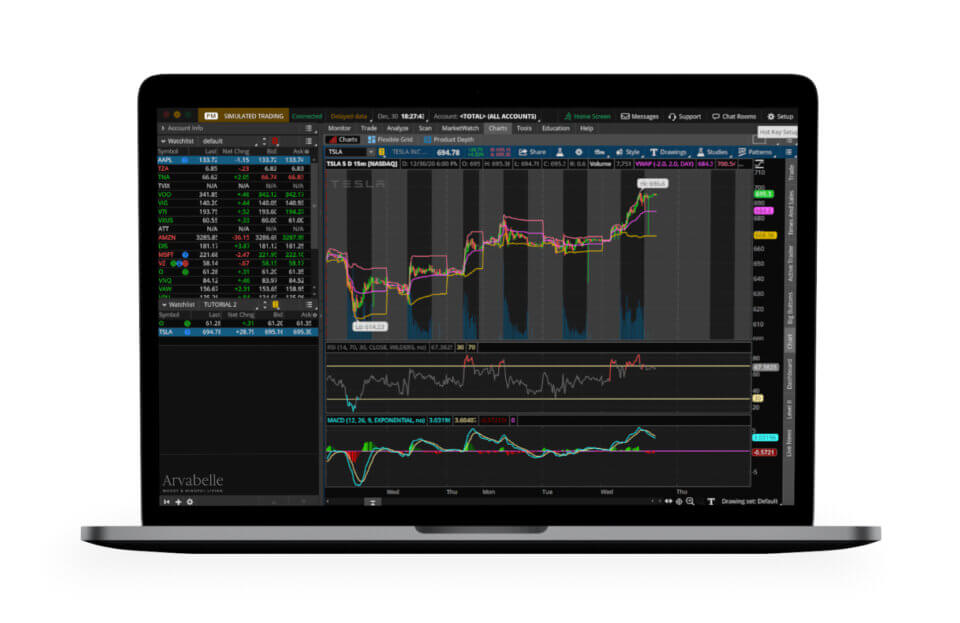
The fear of losing money – it’s a fear that many of us share, and a common reason people avoid investing. We’re going to take a look a few of the most common reasons people actually lose money in the stock market, and point you to some helpful resources you can use to do research and make more educated decisions.
Of course the risk of losing money is always still there, and these are just our opinions. But hopefully you can find some of this helpful in guiding you down the right path when it comes to investing.
1. Investing money that you are not prepared to lose.
When investing, it can be hard to emotionally detach yourself from your money. In times like the present, when the market is very volatile, it’s very possible to see your portfolio drop a large percentage in a short amount of time. Investing money that you are not prepared to lose can lead to emotional distress and panic selling.
Remember, you don’t have to invest just because everyone around you is.
If you are not in a position to put up that extra money to invest, you don’t have to do it. If it’s not the right time for you personally to invest, then it’s not the right time period – regardless of what the market is doing.
It’s important to take care of your necessities, and if you need that money to go towards your essentials, it’s perfectly fine to hold off on investing and work on more pressing financial goals.
Do you have enough emergency savings for a few months if you were to lose your job? Will you have enough money to cover food, water, medication, utilities, and shelter?
If the answer to those is no, take some time to reassess that. Consider working on building up an emergency fund, or paying off outstanding bills. If you feel like you need outside help to set your money goals, you can always talk to a financial advisor or financial planner.
2. Not having a plan
When investing, it’s good to ask yourself questions and start developing a plan so that you can fundamentally understand what you’re investing in (and why you’re investing in it). Not having a plan and just blindly choosing a stock is definitely a reason people can end up losing money.
- What’s your reason for buying that stock or index fund?
- What’s your time horizon for selling it?
- Are you trying to sell it tomorrow? In ten years?
- If you are going to sell, do you know what price range you’d maybe like to try to sell it at?
- And what’s your reasoning for why you think it will go to that price, and why you would sell it there?
Do you know the risk level of that stock?
Is it super volatile, is it pretty steady, or does it barely move?
Whichever one of those it is, are you prepared to handle that?
3. Not doing due diligence & research
Building on the point above, if anything sounds too good to be true, it is. This is in regards to stocks, stock tips, and people on Facebook and Instagram claiming they have it all figured out. It’s very easy to get wrapped into all of the hype. People on social media get very excited, and it’s easy to be influenced by random opinions coming from every direction. When you’re researching stocks, be careful where you’re getting your information from.
When reading articles, watching videos, or reading comments, crosscheck information and make sure it’s accurate before forming an opinion or action plan.
If you’re doing individual stock picking, especially, it’s important to look at the company’s fundamentals. This should be part of that whole planning process that we just talked about.
Some things you could get started looking at:
- the company’s earnings
- debt-to-equity ratio
- price to earnings ratio
- dividend yield (if you’re into dividend investing)
If you’re not sure what any of those terms are, we have an older video here that goes over the basics.
If you are someone that needs clear textbook definitions and context, High Powered Investing for Dummies is a great book to start with.
Admittedly, it’s a bit boring, but it has good, solid, foundational information. It’s also broken down in a way that you can just skip to what you’re looking for. It’s broken down into different “books” and each book is broken down into different chapters.
4. Not observing your behavioral patterns
Panic selling (meaning – panicking and selling your position when a stock price goes down) is definitely a way that a lot of people lose money in the stock market.
You will probably make a mistake at some point, but as long as you’re learning from it, that’s fine. A big part of starting to learn how to invest, is to learn how to identify your own behavioral patterns. As you start trading or investing you’ll start to notice different ways that you react to things. (Part of that is going to be making mistakes!)
You might find that you have a tendency to really panic and sell at the bottom, maybe you always get over confident in a position and miss out on profits, or maybe you consistently catch yourself making a different mistake over and over.
Paper trading is a good way to test how you react with “fake money”
What is paper trading in a nutshell? You get to look at the real market, in real time, but you can practice trading with fake money. It’s a simulation. Not every platform has this option, but for the ones that do, it’s a good way to start off. You can use it to get used to their platform, to make mistakes on it, but also to see how the market moves, and how different order types actually work.
TD Ameritrade’s ThinkOrSwim platform is a great way to get started with this.
When you paper trade, you can see how you react when you make money or lose money and start to identify those patterns. Note that it will feel different when it’s your own actual money and not simulation money, but it can still be useful in identifying patterns in your own behavior.
5. Not getting help
Another reason people commonly lose money, is simply not getting the help they need. (And we don’t mean help from random Facebook or YouTube comments.)
Google is your best friend, but if you are still really struggling with where to start, you can always find external help. So what are your options?
You can find a financial advisor or financial planner (and that’s totally fine to do). Some people are going to hate on that decision, because you will have to pay fees to a financial advisor. But, I’d argue that if you know investing is something that you want to do, but you’re not comfortable or too afraid to start, then talking to a financial advisor could be beneficial.
How do you find an advisor? You can easily search for local advisors on Google, or get referrals from friends and family. Another option is to call your brokerage. If they offer advising services, they can usually pair you with an advisor to work with.
Do your research on the different types of advisors as well! Advisors and planners will have different backgrounds, different training, different certifications, and are legally obligated (or not obligated) to work with you in a certain way. (Hint: start your search with “what is a fiduciary advisor?”)
If you’re kind of on the edge, and don’t really know if you want an advisor, or if you’d rather learn yourself, search for educational resources through your investment brokerage.
These brokerages have LIBRARIES of content, and almost all of them are free and accessible to anyone. This is where they keep all of their videos, articles, seminars, webinars, tutorials, and any other resources for you.
You can usually find these under a “learning center” or “education” tab. For easy access, we’ve linked to the resources of a few common brokerages below.
Most will also have a “live education” side. This could include live webinars, but some will even have local workshops where you can go and physically be in a room with someone to ask your questions. Obviously, the in person events aren’t going on in the middle of the pandemic, but once we’re back to normal, those workshops are a great option for getting more one-on-one help.
You’re the only one responsible for your investing decisions, so it’s very important to do your due diligence. By doing thorough research, you’ll be able to better prepare yourself to make informed investing decisions, and hopefully avoid making the mistakes we discussed.



